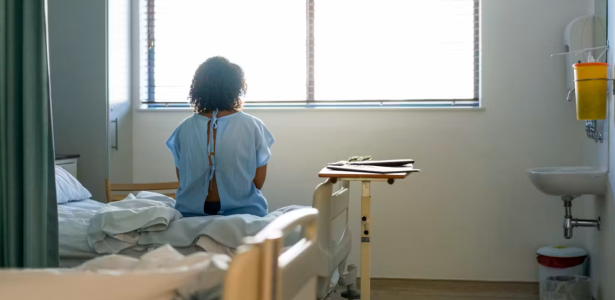Doctors shouldn’t be allowed to object to medical care if it harms their patients
- Replies 0
A young woman needs an abortion and the reasons, while urgent, are not medical. A United States Navy nurse at Guantánamo Bay is ordered to force-feed a defiant detainee on hunger strike.
These very different real-life cases have one connecting thread: the question of whether a health professional can conscientiously object to carrying out a patient’s request.
Freedom of conscience is often held up as a purely noble principle. But when it’s used to deny health care, it means a single person’s beliefs are dictating what is best for another person’s physical and mental health – which can have devastating, even fatal, results.
In our recent book, Rethinking Conscientious Objection in Healthcare, colleagues and I conclude doctors should not be free to make medical decisions based on their personal beliefs.
It’s not noble to refuse care
Freedom of conscience is strongly – but not absolutely – protected under international human rights law. It is enshrined in the Universal Declaration of Human Rights.This principle has often been used for moral purposes: for example, to resist orders to torture or kill.
But after researching use of conscientious objection by health professionals, I have concluded it is seriously flawed when used to deny patients health services. This is especially so when particular doctors have a monopoly on service provision, as is the case with abortion and assisted dying in many rural and regional areas of Australia.
In Australia, doctors are allowed to conscientiously object to abortion, although nearly all states require referral to other service providers or information about how to access the relevant service.
In practice, these laws are not enforced and sometimes disregarded.
A doctor’s refusal can mean patients can be denied the standard of care they need, or indeed, any care at all.
Health-care professionals are not like pacifists refusing conscription into the military, opposing something forced upon them. They freely choose health-care careers that come with obligations and with ethical stances already established by professional codes of conduct.
People are free to hold whatever beliefs they choose, but those beliefs will inevitably close off some options for them. For example, a vegetarian will not be able to work in an abattoir. That is true for every one of us. But what shouldn’t happen is a doctor’s personal beliefs closing off legitimate options for their patient.
4 guiding questions
Instead of personal values, there are four key secular principles we propose that doctors should rely on when deciding how to advise patients about sensitive procedures:- is it legal?
- is it a just and fair use of any resources that might be limited?
- is it in the interests of the patient’s wellbeing?
- is it what the patient has themselves decided they want?
In Ireland in 2012, a young woman named Savita Halappanavar went to an Irish hospital for treatment for her miscarriage. Doctors knew there was no hope of the pregnancy surviving but refused to evacuate her uterus while there was still a fetal heartbeat, for fear of breaching Ireland’s anti-abortion laws. The result: Savita died of septicaemia at 31.
If doctors had put the patient’s wellbeing first, they would have given her that termination, despite the law, and it would have saved her life.
These are the principles that should have been applied to the examples above: the woman seeking an abortion for career reasons or the nurse refusing to force-feed prisoners.
The doctor (or nurse) should ask: Is it what the patient has autonomously decided they want? Will it lead to the best outcome for both their physical and their mental health?
If abortion will promote a woman’s wellbeing, it is in her interests. Hunger strikers should not be force-fed because it violates their autonomy.
An unfair burden
While doctors’ personal values are important, they should not dictate care at the bedside. Not only can this disadvantage the patient, but it places an unfair burden on colleagues who do accept such work, and must carry a disproportionate load of procedures they might find unpleasant and financially unrewarding.It also creates injustice. Patients who are educated, wealthy and well-connected already find it easier to access health care. Conscientious objection intensifies that unfairness in large swathes of the country because it further limits options.
Two countries with excellent health-care systems, Sweden and Finland, do not permit conscientious objection by medical professionals.
In Australia, it is time we do the same and strongly limit conscientious objection as a legal right for health professionals. We should also ensure those entering the discipline are prepared to take on all procedures relevant to their specialty.
And lastly, but most importantly, we should educate them that the patient’s interests and values must always come first. An individual doctor’s sense of moral authority should not be permitted to morph into medical and moral authoritarianism.
This article is republished from The Conversation under a Creative Commons license. Read the original article.








